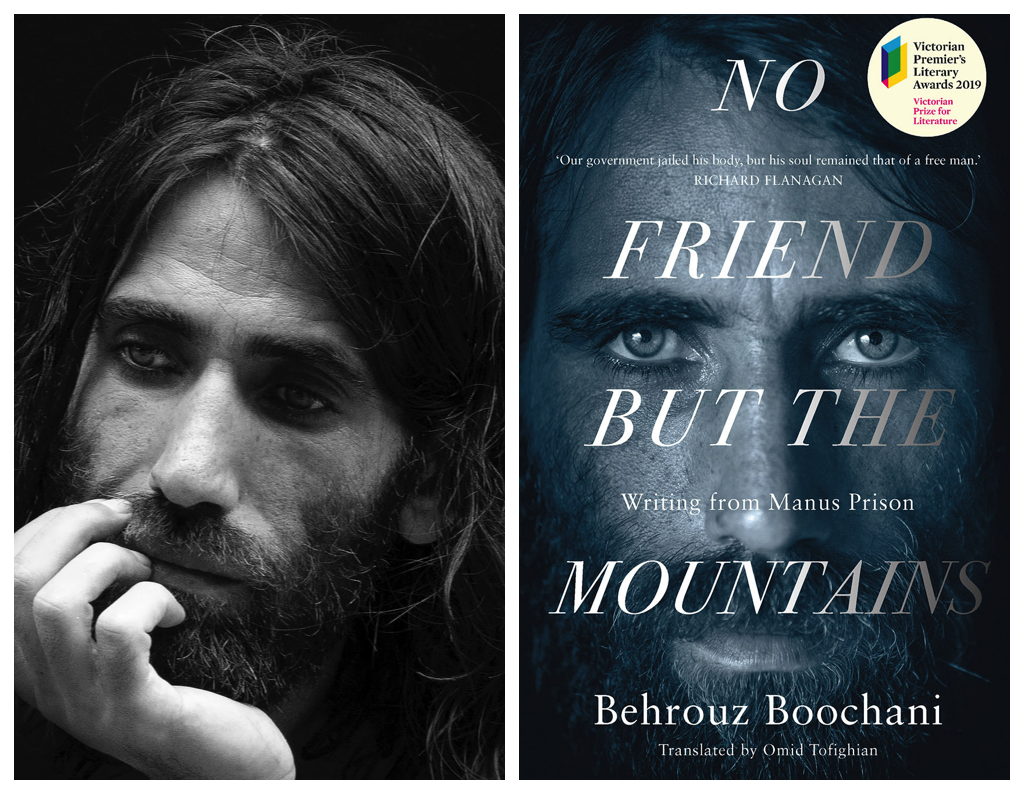Most people by now have probably heard about the Australia detention centres for asylum seekers on Manus Island, an island to the north of Papua New Guinea. Fewer have probably heard of Behrouz Boochani; a Kurdish journalist from Iran who has spent the last six years of his life on Manus Island. He is of course, just one of many.
Six years ago, Boochani left Iran seeking asylum for fear of persecution due to a combination of his atheist beliefs and active role as a journalist report on Kurdish resistance to Iranian rule. In his own words:
“I left Iran because I am an atheist and Iran is a religious dictatorship”.
He has since spent six years in Manus Island, and will be speaking to a sold out audience in Christchurch about his experience on Friday 29 November in a WORD Christchurch event. His book recounting his experience on Manus Island - No Friend but the Mountains - was typed out on a mobile phone in Farsi, before being translated to English, and eventually published.
It is important to remember that at the core of this issue lies the Australian Government’s immigration policy that has set up detention centres not only on Manus Island, but also nearby Nauru. Asylum seekers are routinely sent to the detention centres on these two islands under the guise of awaiting processing. However, this processing is incredibly slow to occur - if it occurs at all. In addition to Boochani’s ongoing six year struggle, there is the case of the Western Saharan man, Said Imasi, who has been held for over eight years without trial or allegation. The stories of Boochani and Imasi are just a couple of many, as of 2018 the United Nations High Commissioner for Refugees(UNHCR) reported that there were around 1,420 people being held between Manus Island and Nauru with a total of around 3,000 being forcibly detained since 2013 and the introduction of Australia’s present refugee policy.
For many, the ongoing implementation of the offshore detention centres represents a fundamental humanitarian crisis; with Boochani himself going so far to call the present refugee policy "a fascist system" when he spoke via Skype at the Marxism 2019 Conference in Melbourne this April. Moreover, the UNHCR has condemned the detention centres and legal experts have stated they are a breach of international law.
The closure of the centres have been announced, but with the solution provided by the Australian Government is to send the asylum seekers back to where the fled from to begin with. A large number - including Boochani - decided to stay and fight for their rights in order to avoid the persecution in which they fled from in the first place.
In his acceptance speech for the Victoria Premier’s Literary Prize in January of this year, Boochani spoke philosophically about the power of the written word:
“I have been in a cage for years but throughout this time my mind has always been producing words, and these words have taken me across borders, taken me overseas and to unknown places. I truly believe words are more powerful than the fences of this place, this prison.”
A profound statement on how words helped him survive and communicate while trapped on Manus.
Boochani’s WORD Christchurch event promises to be deeply moving and a stern examination of the limits of humanity, a powerful insight into overcoming extreme depravity, and a conversation on the power of hope.
The event is sold out, but WORD is hoping to livestream it ...
We are overwhelmed by the love, support and interest shown for @BehrouzBoochani. More than 1000 people have got tickets to see his event and we have now sold out. We hope to live stream it so watch this space! #behrouzboochani #wordchch @AmnestyNZ @JohnJCampbell https://t.co/ULeHYvOPFi
— WORD Christchurch (@WORDChCh) November 18, 2019
Boochani was interviewed by John Campbell on Breakfast in what could be a good way to introduce yourself to the man himself, and what he - and others like him - have experienced. Boochani is also a regular contributor for The Guardian where he was writing from his exile on Manus Island; another good place to begin.
Boochani’s book, No Friend but the Mountains, detailing the experiences of the Manus Island detention centre has won many literary awards including Victorian Premier’s Literary Prize, New South Wales Premier's Literary Award, the Anna Politkovskaya Award for Journalism, he was nominated for the Index on Censorship’s Freedom of Expression award in 2017, and his work has been recognised by Amnesty International.





Add a comment to: Behrouz Boochani, Writing from Manus Prison – WORD Christchurch